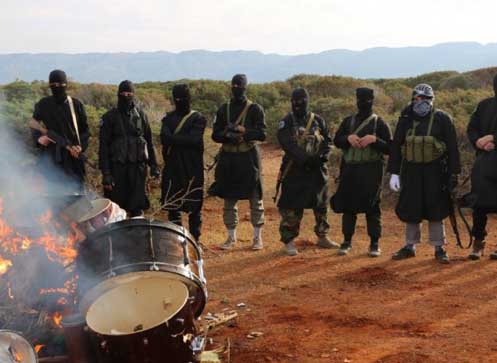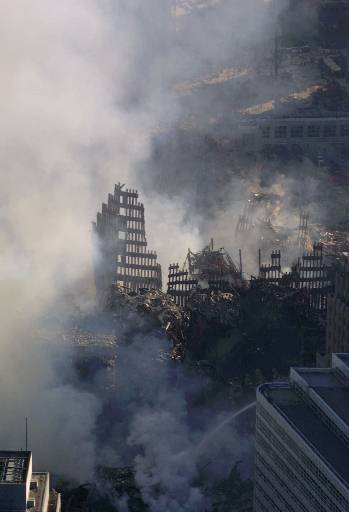
The call to reform something is itself an implicit acknowledgement of a fault which has prevented it, or well-nigh prevented it, from carrying out its purpose. But at the same time it is an indication of the continuing desire to uphold and maintain it just as it is and – if the damage repair process is successful – count on its continued ability to satisfy requirements just as they were before.
DAMAGE REPAIR DOES NOT in itself add anything substantially new, nor does it transform anything into anything else. It merely replaces faulty parts and secondary components with a new set of similar ones while the product remains essentially the same as it was prior to undergoing the process of reform – bar some retouching and surface repairs. Clearly the repair of a Mercedes car, for instance, does not mean that after undergoing a repair it turns into a new make of car such as a Peugeot or a Fiat, or into a new type of train, or an aircraft or a cart, or a new species such as a fox, a bird, an insect or frog, or a cow or a small child. Even subsequent to the repair the Mercedes car remains as it was, albeit with a performance inferior to its original, factory-fresh condition.
The same goes for the reform of religious discourse – nothing essential to the religious discourse or to religion itself will change in anything beyond highly superficial matters. The religion, in its discourse, will remain exactly as it was, it will not turn into another religion, traditional or innovative, or another type of culture, philosophy, chemistry, engineering, medicine or another type of caliphate.
If by reform we mean upholding and maintaining the essence of something just as it always was, change denotes something quite the opposite, and yet it all remains as part of the same species. When the Mercedes car breaks down you can replace it with another new or used car, either from the same brand or from an entirely different one, the important thing being that you are not left without a car. Change means dispensing with a thing in itself and not just of its species. I can do without that particular car but I can’t do without a car as such, that is, a vehicle I can travel in and get from place to place.
They maintain the basics and fundamentals of religion just as they have existed for over a millennium
Change, in the religious sphere equates with shifting from one religion to another one of the same ilk, be it traditional or innovative – perpetuating the same need to embrace religion, any religion, just as my need for a car, any car. For instance, when one converts from Christianity to Islam, or from Islam to Buddhism, one is here changing religion but not dispensing with religion completely. One continues to be either a Christian or Muslim or a Buddhist or an adherent of another religion, but in each case one remains unable to live without religion. So the term ‘change’ is entirely excluded from the vocabulary of those advocating the renewal of religious discourse – instead they replace it with the term ‘reform,’ since it is more convenient to them to keep one step ahead, by making a claim to be renewing and keeping up with the innovations of the modern era. At the same time they maintain the basics and fundamentals of religion just as they have existed for over a millennium. Reform allows them this, whereas change leaves them with nothing left over from it.
There is a third problem, and that is that the advocates themselves of reform do not intend or desire that reform should touch on anything to do with the religion – just the religious discourse. In their conception this means that religion itself is absolutely unmarred by any shortcomings or any faults, and that consequently it is in no need of a reform of any kind. As they see it, it does not need to be reformed, nor changed in anything other than how it is talked about. The faults and the shortcomings are ‘ours alone’ and not those of the religion. Religion is ‘true and absolutely correct’ and may not be touched – it is we, its commentators and interpreters and relativists, who reference it, attribute things to it, and understand it wrongly at times. All that is required is that we review, correct and reform our understanding and renew our discourse from time to time whenever one new pressure or another rears its head, such as that following the explosions at the Twin Towers of the World Trade Center on September 11 2001.
The faults and the shortcomings are ‘ours alone’ and not those of the religion
From this starting point the calls for ‘improving the image of Islam’, ‘acknowledging true Islam’, ‘the Islamic Middle Way’ and ‘the tolerant Islamic faith’ and so on proliferate – as if to suggest that the basis of the entire problem is our faulty, relativist understanding of this absolutely true religion, and is not connected in any way with the essence of religion itself, with its principles, its related disciplines, its fundamentals, its incontrovertible beliefs or its inherited obligations as they are passed from one generation to another. Religion, they hold, is absolutely right, but we as mortals are prone to sin, and the best of such sinful mortals are those who repent and reform. Reform applies exclusively to us, those who speak in the name of religion, but never to religion itself.
This is a massive deception, a giant firewall built up and maintained by religious authorities over the centuries: a complete division between on the one hand the Text, the imagination, the divine and the religious, and on the other hand their application and the practice of mankind the world over. This means that whenever a fault or disaster in application or practice takes place there is always a safe exit route open for the holy Text in the mere re-reading, reinterpreting and re-commenting of it. It is therefore presented as not the fault of religion but the fault of those who wrongly understand and interpret the religion. We are the ones who are to take the blame while the religious Text remains sanctified and immune from any questioning or criticism, let alone any identification of defects or any endeavour to repair them.
In this way we endlessly orbit around the same divine sanctified Text which remains just as it has been upheld for millenia. It becomes read, commented and interpreted over and over again until we start the ball rolling right from the beginning, whenever need dictates. This is what happened in the 18th century at the hands of Shaykh Muhammad ibn ʽAbd al-Wahhāb in the Arabian Peninsula whereby none dared break out of this vicious, narrow circle stuffed with the souls and bodies of the dead, into the free open space of thought and innovation.
This is a massive deception, a giant firewall built up and maintained by religious authorities over the centuries
Even for the Islamists, who describe themselves as centrist and tolerant and who speak continually about the need for reform and religious renewal, the Islamic religion itself is correct and absolutely true and beyond any discussion or argument. This also holds true, for example, for the verses and rulings concerning the enslavement of boys and girls, the cutting of the hands of the thief, the flaying alive and stoning to death of the adulteress openly and in public. When they discuss these things we see them not opposing them in essence but merely deploring them for the right conditions not having being met. They do not oppose the cutting of the thief’s hand in principle and make excuses for it out of a need to establish justice, just as ‘Umar ibn al-Khattāb first did. Afterwards, and only afterwards, is there any talk of the application of the hadd penalties. And, once again from the point of view of the principle, they are not against the open public killing of the adulteress in the street, but being ‘tolerant’ they make excuses for it by citing crippling conditions that make the application of this inhumane punishment well-nigh impossible.
Any discussions on reform of the religious discourse, or of the Islamic faith itself in all its fundamentals and incontrovertible beliefs, are slippery, fickle discussions whose basic purpose is to keep one step ahead of the pressures, challenges, massive internal and external failures that they are having to face from one moment to the next. Sound logic would dictate that religious clerics – in any religion – would have an absolute belief in their religion, otherwise they would forfeit their name. This, to be sure, has also been the case with the clerics, doctors of law and shaykhs of the Islamic faith right from its inception, whatever their claims to the contrary under the pressure of circumstances or conditions that were unfavourable to them. It is perhaps against any logic to wait for any true reform from people such as these, simply because they never have, and never will see, any impurity, or fault or defect in their religion to require this from them – or even any discussion on the need for reform. Talk of reform is nothing but a smoke bomb which clerics employ to ease the pressure from them and prevent their opponents from understanding their real intentions.

Suggested Reading
Development, in significant contradistinction to voluntary reform and change, is an inevitable, inexorable fact of the universe we are living in, something which no human nor vegetable nor mineral can escape. Even if the clerics can escape up to a point from the demands of voluntary reform and change, they will never be able to confound and distort the course of development. Who can claim that the precinct of the Kaaba or even the Kaaba itself is the same as it has been for over 1000 years, or even just for the last two years? Who can claim that the treatment that the Greek or Japanese tourist in the city today is the same as it has been for over 1000 years? Where are the metalworkers and the slave markets? Who changed the ships of the desert into oil tankers? It is development, whether you like it and welcome it with open arms, or not.


